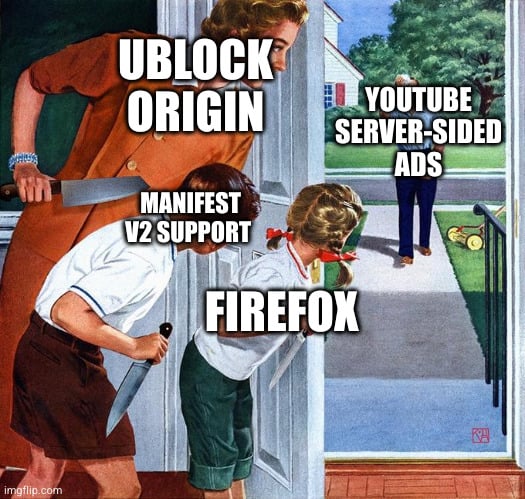this post was submitted on 10 Oct 2024
976 points (97.8% liked)
memes
10334 readers
1665 users here now
Community rules
1. Be civil
No trolling, bigotry or other insulting / annoying behaviour
2. No politics
This is non-politics community. For political memes please go to !politicalmemes@lemmy.world
3. No recent reposts
Check for reposts when posting a meme, you can only repost after 1 month
4. No bots
No bots without the express approval of the mods or the admins
5. No Spam/Ads
No advertisements or spam. This is an instance rule and the only way to live.
Sister communities
- !tenforward@lemmy.world : Star Trek memes, chat and shitposts
- !lemmyshitpost@lemmy.world : Lemmy Shitposts, anything and everything goes.
- !linuxmemes@lemmy.world : Linux themed memes
- !comicstrips@lemmy.world : for those who love comic stories.
founded 1 year ago
MODERATORS
you are viewing a single comment's thread
view the rest of the comments
view the rest of the comments

YouTube serves probably dozens of formats/bitrates, and has spent years tweaking how it ingests, transcodes, and serves videos. Adding in-stream ads might have been a bigger engineering task in that environment. Depending on the percentage of users/viewers avoiding ads, it might not have been worth the return.
As I know they transcode every uploaded video to their preferred format. They could use the same infrastructure for the ads. But maybe it's really too expensive.
You are correct, which goes into the cost category of doing a stream stitched integration. Also, when I left said ad server in 2016, I think I recall HLS streaming primarily supported by Apple devices. Devices like Roku's (don't quote me on that) didn't support it at the time so a lot of companies looked at where the majority of their streaming was occurring and decided it wasn't worth the hit.